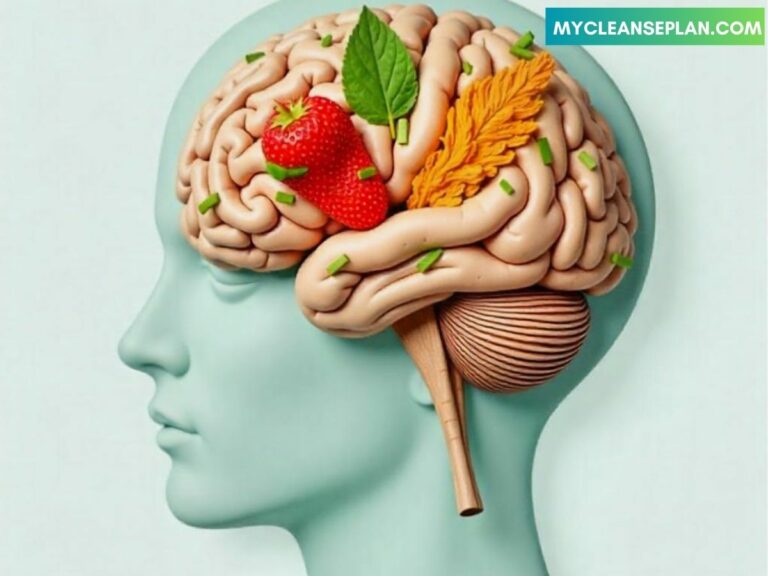What Your Sleep Score Says About Your Health?
I remember the day I learned how sleep affects my health. It was a big change for me. I found out that knowing my sleep score is key to understanding my health.
Our sleep is very important for our health. A good night’s sleep shows our body is working well. By looking at our sleep score, we can learn a lot about our health and make it better.
Key Takeaways

The Science Behind Sleep Scoring
Learning about sleep scoring is key to a good night’s sleep. It’s not just about how long we sleep. It’s also about how well we sleep.

What Is a Sleep Score?
A sleep score shows how well I sleep. It looks at how long I sleep, the sleep stages, and any sleep breaks. This score helps me see where I can get better sleep.
How Modern Technology Measures Sleep
Today’s tech can track sleep very well. Devices like smartwatches and fitness trackers use accelerometers and heart rate monitors to track sleep. They can tell if I’m in light, deep, or REM sleep, giving me a clear view of my sleep.

The Evolution of Sleep Tracking
Sleep tracking has changed a lot. It’s not like the old days of polysomnography (PSG) anymore. Now, I can use simple devices at home to track my sleep. This makes sleep tracking easy for everyone, helping us take care of our sleep.
Knowing how sleep scoring works helps me understand my sleep score better. This way, I can make choices to improve my sleep quality.
https://gigasecurehome.com/budget-outdoor-cameras-that-perform-like-premiu
Key Components That Make Up Your Sleep Score
To understand your sleep score, let’s look at its main parts. Your sleep score is a detailed measure of your sleep health.
Sleep Duration: More Than Just Hours
Sleep duration is key to your sleep score. It’s not just about how long you sleep. It’s also about how regular your sleep schedule is. Studies show that too little or too much sleep can harm your health.

Sleep Quality Indicators
Sleep quality indicators check how well you sleep, not just how long. They look at sleep breaks, sleep stages, and sleep disorders. Advanced sleep trackers can track these, giving a clearer view of your sleep health.
Sleep Consistency and Its Importance
Sleep consistency is about keeping a regular sleep schedule. It’s important for a good sleep score. If your sleep schedule is off, it can mess with your body’s clock and health.
| Component | Impact on Sleep Score | Health Implications |
|---|---|---|
| Sleep Duration | High | Affects physical and mental restoration |
| Sleep Quality | High | Influences cognitive function and emotional well-being |
| Sleep Consistency | Medium | Regulates circadian rhythms and metabolic health |
What Your Sleep Score Says About Your Health
Your sleep score is key to your health, affecting both body and mind. It helps you start improving your sleep and health.
Interpreting Different Score Ranges
Sleep scores range from 0 to 100. A score over 80 means you sleep well. Scores under 60 might show sleep problems.

https://gigasecurehome.com/top-outdoor-cameras-with-night-vision-you-can
Warning Signs in Your Sleep Data
Low sleep scores can hint at health issues. Watch for signs like waking up a lot or trouble falling asleep.
| Score Range | Sleep Quality | Action Required |
|---|---|---|
| 80-100 | Good | Maintain current sleep habits |
| 60-79 | Fair | Adjust sleep environment or routine |
| 0-59 | Poor | Consult a healthcare professional |
Positive Patterns to Celebrate
Celebrate regular sleep times and deep sleep. These good habits boost your sleep score and health.
Physical Health Insights From Your Nightly Data
Your sleep data can reveal a lot about your body’s health. By looking at your sleep patterns, you can learn about your physical health. This includes your heart, immune system, and metabolism.
Heart Health Connections
Studies link sleep quality to heart health. Better sleep helps keep your heart healthy by managing stress and supporting blood flow. The American Heart Association says sleep loss can raise heart disease risk.
Immune System Function and Recovery
Good sleep is key for a strong immune system. It helps your body fix cells, build bones and muscles, and boost your immune system. Health experts stress that sleep is vital for immune function.

Metabolic Health and Weight Management
Sleep affects your metabolism and weight. Bad sleep can mess with hunger hormones, leading to weight gain.
But, better sleep can help with weight loss and improve metabolism. Research shows that good sleep is linked to better weight control and lower metabolic disease risk.
Understanding your sleep data can help improve your physical health. Working on your sleep score can positively affect your heart, immune system, and metabolism. This can lead to better overall health.
Mental Wellbeing Reflected in Sleep Patterns
Exploring sleep science shows that our sleep patterns reveal a lot about our mental health. The quality of our sleep is closely tied to our mental wellbeing. It affects and is affected by stress, anxiety, and how well we think.
Stress and Anxiety Signatures
Stress and anxiety can change how we sleep. People under a lot of stress might have trouble falling or staying asleep. This can make their sleep poor and show up in their sleep score.

Depression-Related Sleep Disruptions
Depression also affects sleep. Those with depression might have trouble sleeping too much or too little. Knowing this can help understand their mental state and find the right help.
Cognitive Performance Links
Our sleep also affects how well we think. Good sleep means we can focus better, remember things, and solve problems. But, bad sleep can make these tasks harder.
| Mental Health Aspect | Sleep Pattern Impact | Cognitive Performance Effect |
|---|---|---|
| Stress and Anxiety | Fragmented sleep, difficulty falling asleep | Impaired concentration, memory issues |
| Depression | Insomnia or hypersomnia | Reduced problem-solving skills, decreased productivity |
| Cognitive Function | Restorative sleep enhances cognitive performance | Better memory, improved concentration |
Looking at our sleep patterns can help us improve our mental health. By focusing on better sleep, we can also boost our mental wellbeing.
Understanding Sleep Stages and Their Health Implications
Our brain goes through different stages while we sleep. These stages are key for our body to heal, our mind to refresh, and our health to improve.
The stages include deep sleep, REM sleep, and light sleep, each with its own role in keeping us well.
Deep Sleep: Your Body’s Repair Mode
Deep sleep is vital for our body’s repair. It’s when our body fixes tissues, builds bones and muscles, and boosts our immune system.
It’s also when our brain sorts out and keeps memories. Adequate deep sleep is essential for feeling rested and refreshed.
A study in the Journal of Clinical Sleep Medicine showed deep sleep helps clear brain plaques linked to Alzheimer’s. This shows how important deep sleep is for our brain.
REM Sleep and Emotional Processing
REM sleep is when our brain is very active and we dream vividly. It’s key for our mental health, helping us manage emotions and reduce stress.
Research has shown that REM sleep is linked to improved cognitive function and better emotional regulation.
“REM sleep is a critical component of our sleep cycle, playing a key role in emotional processing and memory consolidation.” – Dr. Matthew Walker, Sleep Expert
Light Sleep: More Important Than You Think
Light sleep is often seen as less important but is actually vital. It helps us move from being awake to deeper sleep. It’s also essential for getting ready for deeper sleep.
| Sleep Stage | Characteristics | Health Implications |
|---|---|---|
| Deep Sleep | Slow brain waves, reduced body temperature | Physical recovery, immune system strengthening |
| REM Sleep | Rapid eye movements, heightened brain activity | Emotional processing, cognitive function |
| Light Sleep | Transition between wakefulness and deeper sleep | Regulation of sleep-wake cycle, preparation for deeper sleep |

Knowing about the different sleep stages and their health benefits can help us improve our sleep and health. By understanding the importance of each stage, we can make our sleep environment better and our habits healthier.
Environmental Factors Impacting Your Sleep Score
Many environmental factors can greatly affect your sleep score and health. Your sleep quality isn’t just about your habits. It also depends on your sleep environment.
Bedroom Temperature and Humidity
Keeping your bedroom temperature between 60-67°F (15-19°C) is key for good sleep. A cooler bedroom helps keep your body temperature stable, leading to better sleep. It’s also important to keep humidity levels between 30-50% to avoid discomfort and breathing problems.

Light Exposure: The Good and Bad
Light exposure greatly impacts your sleep cycle. Natural light during the day helps set your body’s clock.
But, bright lights, like those from screens, can mess with your sleep at night. Using blackout curtains or dim red lights can help make your bedroom sleep-friendly.
Sound Environment Optimization
The sound around you is also very important. A quiet space is best, but if that’s not possible, white noise machines or soundproofing can block out loud noises. This can greatly improve your sleep by reducing interruptions.
Daily Habits That Shape Your Sleep Quality
Daily routines are key to good sleep. Making smart choices in our daily habits can greatly improve our sleep.
Exercise Timing for Optimal Sleep
Exercise is great for sleep, but when you do it matters. Working out too close to bed can keep you awake.
It raises your adrenaline and body temperature. Finish your workout a few hours before bed to relax.

Nutrition and Hydration Strategies
What we eat and drink affects our sleep. Eating a balanced diet with fruits, veggies, and whole grains helps. Drinking water is good, but not too much before bed to avoid waking up.
| Nutrient | Benefit for Sleep | Food Sources |
|---|---|---|
| Magnesium | Relaxation, muscle recovery | Dark leafy greens, nuts, seeds |
| Tryptophan | Serotonin production, relaxation | Turkey, chicken, fish, eggs |
| Potassium | Muscle relaxation | Bananas, avocados, sweet potatoes |
Digital Habits and Screen Time Management
In today’s world, controlling screen time is vital for better sleep. The blue light from screens can stop melatonin production. Try to avoid screens an hour before bed and use blue light filters when you must.
Being aware of our daily habits, like exercise, diet, hydration, and screen use, helps us sleep better. It’s all about making smart choices for a good night’s rest.
Practical Steps to Improve Your Sleep Score
Getting a good night’s sleep is key. There are simple steps to boost your sleep score. Making a few changes can greatly improve your sleep and health.
Creating a Sleep-Promoting Evening Routine
Start a calming routine before bed. This could be reading, meditation, or a warm bath. Stay away from screens an hour before bed to avoid blue light.
Bedroom Modifications for Better Sleep
Make your bedroom a sleep haven. It should be dark, quiet, and cool. Use blackout curtains, earplugs, or a white noise machine if needed. Choose a comfy mattress and pillows for a good night’s sleep.

Using Sleep Tech to Your Advantage
Sleep tech can help you understand and better your sleep. It lets you track your sleep patterns to find areas to improve.
Choosing the Right Sleep Tracking Device
Look for a sleep tracker that meets your needs. Some track sleep stages, heart rate, and snoring. Pick one that’s easy to wear and has the features you want.
Setting Realistic Improvement Goals
Start tracking your sleep and set goals for better sleep. Goals could be going to bed 15 minutes earlier or cutting down on nighttime wake-ups. Keep track of your progress and adjust your goals as needed.
| Sleep Improvement Strategy | Expected Outcome | Tips for Implementation |
|---|---|---|
| Establish a bedtime routine | Improved sleep quality | Start with a relaxing activity, avoid screens |
| Optimize bedroom environment | Better sleep duration | Use blackout curtains, earplugs, comfortable bedding |
| Use sleep tracking technology | Insights into sleep patterns | Choose a device that tracks relevant data, set realistic goals |
By taking these steps, you can improve your sleep score and health. Remember, small changes can make a big difference over time.
When to Seek Professional Help for Sleep Issues
Knowing when to get help for sleep problems is key. Self-help can really help, but if issues keep coming back, you might need a pro’s help.

Persistent Problems Despite Self-Help
If you’ve tried everything to sleep better but can’t, it’s time to see a sleep expert. Chronic sleep deprivation can harm your heart, immune system, and mind.
Concerning Patterns That Need Medical Attention
Some sleep issues need a doctor’s check-up. Loud snoring, sleep apnea, or restless leg syndrome can hurt your sleep and health. If you see these signs, get help fast.
Types of Sleep Specialists and Finding the Right One
There are many sleep doctors, like pulmonologists and neurologists. Pick one based on your sleep problem. For sleep apnea, start with a pulmonologist.
“The right specialist can provide a complete check-up and a plan just for you.”
Ask your doctor for a referral or look up sleep experts through the American Academy of Sleep Medicine.
FAQ Of What Your Sleep Score Says About Your Health?
What is a sleep score, and how is it calculated?
A sleep score shows how well you sleep. It’s based on how long you sleep, how well you sleep, and if your sleep is regular. Wearable devices or sleep apps help track this.
How can I improve my sleep score?
To boost your sleep score, start by sleeping at the same time every day. Make your bedroom a cozy sleep space. Avoid exciting activities before bed. Use sleep tracking tools to see how you’re doing and make changes.
What are some common warning signs in sleep data that I should be concerned about?
Watch out for signs like constant sleep breaks, odd sleep patterns, or low sleep quality. If you see these, it’s time to figure out why and fix it.
Can sleep scores predict overall health and wellbeing?
While sleep scores don’t directly show health, they hint at it. Bad sleep can lead to heart disease, diabetes, and mental health problems.
How can I use sleep insights to improve my mental wellbeing?
By looking at your sleep, you can spot and fix problems. Try relaxation methods like meditation or deep breathing. If sleep issues or mental health worries last, get help from a professional.
What are some practical steps I can take to create a sleep-promoting evening routine?
For a better evening routine, try reading, taking a warm bath, or doing gentle stretches. Stay away from screens an hour before bed. Stick to a regular sleep schedule to keep your body’s clock in sync.
When should I seek professional help for sleep issues?
If you’ve tried to help yourself but can’t sleep well, it’s time to see a doctor. A healthcare expert or sleep specialist can help find the cause and create a plan to fix your sleep problems.
Conclusion: Turning Sleep Insights Into Better Health
Understanding sleep health is key for our overall wellbeing. By looking at sleep quality indicators, we can spot areas to improve. This helps us make smart choices to better our sleep.
Sleep scoring shows more than just a number. It reflects our physical and mental health. Using modern tech to track our sleep gives us insights into our body’s needs.
By changing our daily habits and sleep space, we can boost our sleep score. This leads to better heart health, immune function, and brain function.
We can improve our sleep by paying attention to our sleep quality indicators and making changes for a good night’s sleep.
By focusing on sleep and understanding its importance, we wake up feeling refreshed and ready. It’s time to use our sleep insights to live a healthier, happier life.




